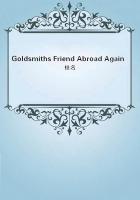The lack of municipal regulation already referred to was, in the early days of Hull-House, parallelled by the inadequacy of the charitable efforts of the city and an unfounded optimism that there was no real poverty among us. Twenty years ago there was no Charity Organization Society in Chicago and the Visiting Nurse Association had not yet begun its beneficial work, while the relief societies, although conscientiously administered, were inadequate in extent and antiquated in method.
As social reformers gave themselves over to discussion of general principles, so the poor invariably accused poverty itself of their destruction. I recall a certain Mrs. Moran, who was returning one rainy day from the office of the county agent with her arms full of paper bags containing beans and flour which alone lay between her children and starvation. Although she had no money she boarded a street car in order to save her booty from complete destruction by the rain, and as the burst bags dropped "flour on the ladies' dresses" and ""beans all over the place," she was sharply reprimanded by the conductor, who was the further exasperated when he discovered she had no fare. He put her off, as she had hoped he would, almost in front of Hull-House. She related to us her state of mind as she stepped off the car and saw the last of her wares disappearing; she admitted she forgot the proprieties and "cursed a little," but, curiously enough, she pronounced her malediction, not against the rain nor the conductor, nor yet against the worthless husband who had been set up to the city prison, but, true to the Chicago spirit of the moment, went to the root of the matter and roundly "cursed poverty."
This spirit of generalization and lack of organization among the charitable forces of the city was painfully revealed in that terrible winter after the World's Fair, when the general financial depression throughout the country was much intensified in Chicago by the numbers of unemployed stranded at the close of the exposition. When the first cold weather came the police stations and the very corridors of the city hall were crowded by men who could afford no other lodging. They made huge demonstrations on the lake front, reminding one of the London gatherings in Trafalgar Square.
It was the winter in which Mr. Stead wrote his indictment of Chicago. I can vividly recall his visits to Hull-House, some of them between eleven and twelve o'clock at night, when he would come in wet and hungry from an investigation of the levee district, and while he was drinking hot chocolate before an open fire, would relate in one of his curious monologues, his experience as an out-of-door laborer standing in line without an overcoat for two hours in the sleet, that he might have a chance to sweep the streets; or his adventures with a crook, who mistook him for one of this own kind and offered him a place as an agent for a gambling house, which he promptly accepted. Mr. Stead was much impressed with the mixed goodness in Chicago, the lack of rectitude in many high places, the ****** kindness of the most wretched to each other. Before he published "If Christ Came to Chicago" he made his attempt to rally the diverse moral forces of the city in a huge mass meeting, which resulted in a temporary organization, later developing into the Civic Federation. I was a member of the committee of five appointed to carry out the suggestions made in this remarkable meeting, and or first concern was to appoint a committee to deal with the unemployed. But when has a committee ever dealt satisfactorily with the unemployed?
Relief stations were opened in various part of the city, temporary lodging houses were established, Hull-House undertaking to lodge the homeless women who could be received nowhere else; employment stations were opened giving sewing to the women, and street sweeping for the men was organized. It was in connection with the latter that the perplexing question of the danger of permanently lowering wages at such a crisis, in the praiseworthy effort to bring speedy relief, was brought home to me. I insisted that it was better to have the men work half a day for seventy-five cents than a whole day for a dollar, better that they should earn three dollars in two days than in three days. I resigned from the street-cleaning committee in despair of ****** the rest of the committee understand that, as our real object was not street cleaning but the help of the unemployed, we must treat the situation in such wise that the men would not be worse off when they returned to their normal occupations. The discussion opened up situations new to me and carried me far afield in perhaps the most serious economic reading I have ever done.














